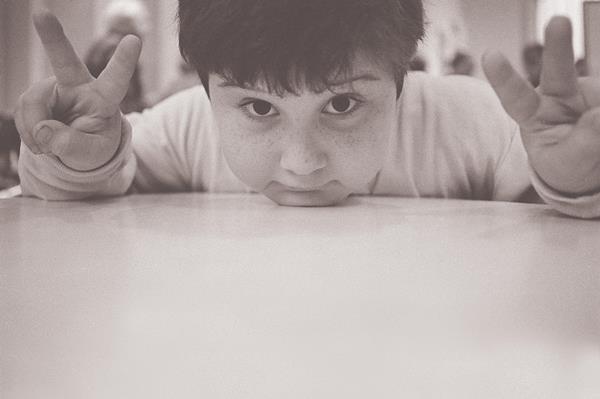
In this absorbing, oft-harrowing documentary, director Sasha Joseph Neulinger revisits home movies of himself from the early 1990s, in which, starting at age four, he changed from sweet-natured to exhibiting troubling behavior. Neulinger interviews his father, Henry Nevison, who did most of the filming, as well as his mother, Jacqui, regarding how frustrating this time period was for them. However, the emotional impact of these conversations pales in comparison to the footage of Sasha acting out: he throws tantrums, withdraws from loved ones, and threatens self-harm.
We also meet the extended Nevison family, most notably Henry’s older brothers Howard and Larry. Howard, a respected cantor at a high-profile New York City synagogue, has a larger-than-life presence, while Larry is the black sheep. After introducing the extended family, including Henry and Jacqui’s daughter Bekah, Sasha’s younger sister, the film takes on the shape of a waking nightmare that keeps getting worse and more surreal. During a visit with Sasha to a therapist, Jacqui discovers her son is being molested by an adult male, but he won’t say who it is. Then it’s revealed that Bekah has also been sexually abused.
Neulinger revisits arguably the most horrific years of his life with a surprising amount of empathy for his parents, especially Henry. The impression of Jacqui, meanwhile, is of a caring mother with endless patience; we constantly hear her from offscreen, never losing her cool, even when Sasha’s mood is at its darkest. She also doesn’t shy away from regrets about not doing more, though it’s also clear her son’s abusers were both calculating and insidious.
There are some queasy moments as Sasha and Jacqui talk about the abuse, and it’s tough to watch but fascinating to revisit the kids’ therapy sessions as their former doctor reveals the drawings they made. Depicting what young Sasha and Bekah could not yet fully comprehend, these artifacts are nevertheless full of dark and violent imagery, with impressionistic monsters serving as stand-ins for their monstrous abusers.
The last third centers on the criminal case Sasha was involved in, where Neulinger shines a light on how badly victims of sexual violence are treated by the legal system, especially when the accused have power and resources. There was no recording of Neulinger’s testimony in the courtroom, but second-hand accounts by those who were present are nevertheless powerful and inspiring, and Sasha’s act of facing down his tormentor goes a ways toward healing. At his bar mitzvah, which took place not long after the courtroom confrontation, his body language is significantly lighter and more carefree.
Rewind ends on an upbeat note, although there is a difference between victory in the court versus real life. In its closing scenes, the film reminds us that the criminal justice system still badly needs certain reforms, and there’s no denying Neulinger’s credibility in stating how victims need better protection in the courts and in pointing out warning signs of child abuse.
















Leave A Comment